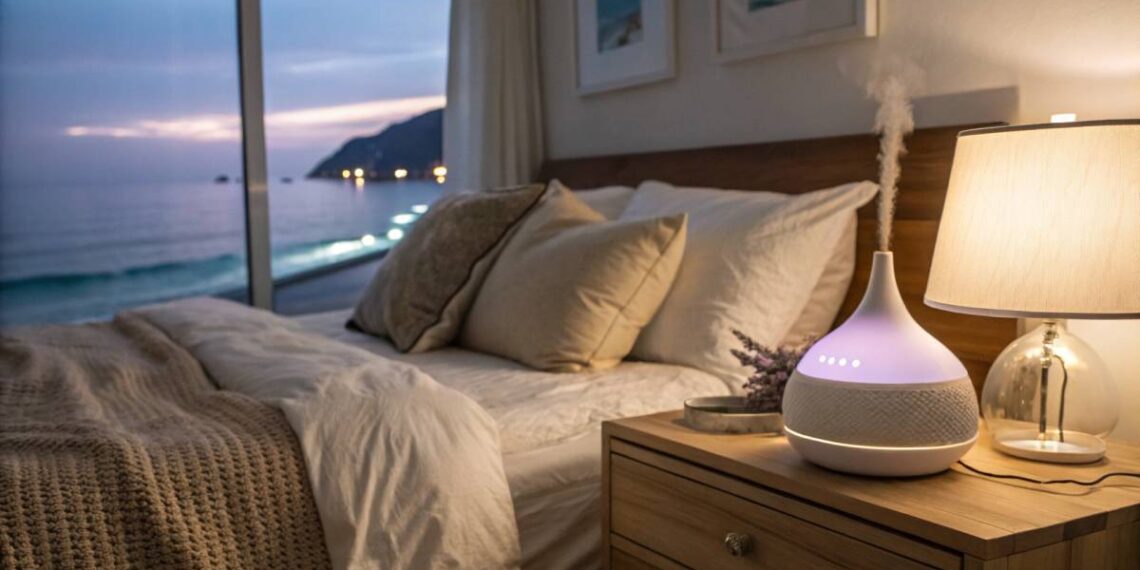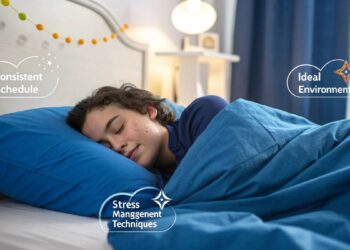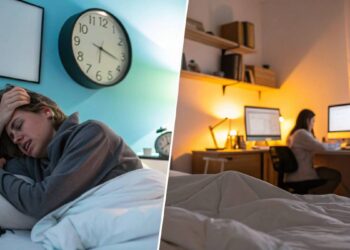Struggling to drift off as sleep anxiety keeps you awake? You’re not alone. Many face the relentless cycle of worry and sleepless nights, but there are proven strategies to reclaim your rest. From natural remedies to professional therapies, this guide explores actionable solutions to help you overcome sleep anxiety and embrace peaceful nights. Let’s embark on a journey to better sleep and improved well-being.
Main Key Takeaways
- Understanding Sleep Anxiety: Recognize the causes and effects of sleep anxiety to address it effectively.
- Natural Remedies: Incorporate herbal supplements, mindfulness, and exercise to enhance sleep quality.
- Professional Support: Explore therapies like CBT-I and biofeedback for persistent sleep issues.
- Lifestyle Adjustments: Establish consistent sleep routines and create a restful sleep environment.
- Diet and Nutrition: Optimize your diet to support healthy sleep patterns and reduce anxiety.
Understanding Sleep Anxiety
Sleep anxiety is like that annoying mosquito buzzing around your room—it keeps you up when all you want is some shut-eye. Lots of folks deal with it, and it stops them from catching the Zzz’s they really need. Below, we’ll break down what sleep anxiety is, why it happens, and how it messes with your sleep.
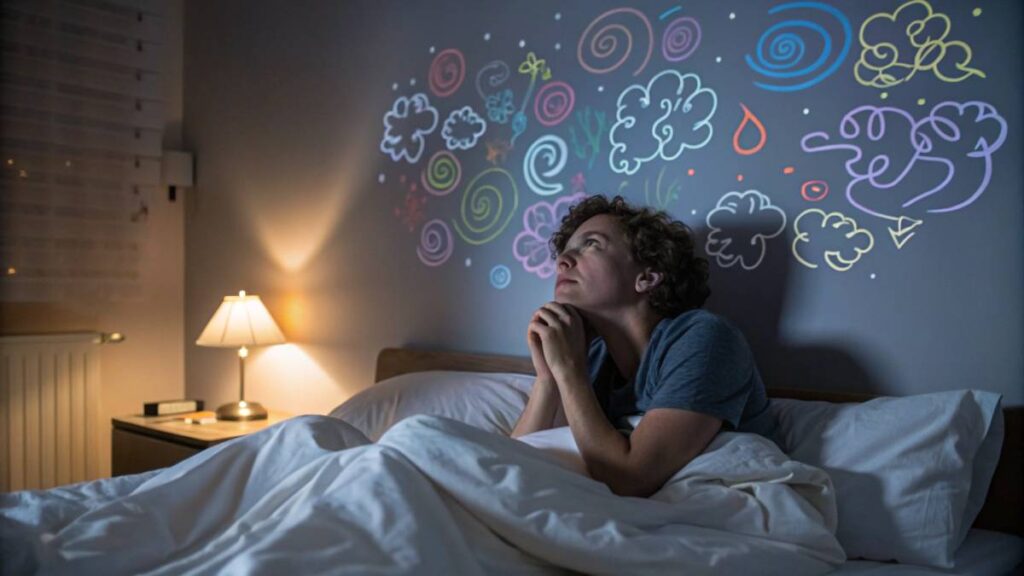
What is Sleep Anxiety?
Sleep anxiety is that nagging worry about hitting the hay. People who get the jitters about bedtime usually trap themselves in a cycle of stress and sleep loss. Their fretting over insomnia itself stops them from dozing off! This isn’t just a minor hiccup—lack of good sleep can mess you outright good.
| Aspect | Description |
|---|---|
| Definition | Fear or worry about hitting the hay |
| Common Symptoms | Restlessness, mind racing, dread of insomnia |
Common Causes of Sleep Anxiety
Figuring out what’s causing your sleep anxiety can be the first step toward handling it better.
- Stress and Worry: Everyday pressures like a nagging boss, money woes, or messy relationships.
- Health Issues: Ongoing health problems or pain.
- Poor Sleep Habits: Irregular sleep schedules and messy sleep spaces.
- Past Sleep Troubles: Battling insomnia or other sleep-related issues in the past.
Need some tips for natural ways to deal with these worries? Check out our guide on natural sleep solutions.
Effects of Sleep Anxiety on Sleep Quality
Sleep anxiety doesn’t just rob you of a good night’s rest—it starts a vicious cycle of worry and wakefulness. It’s not just about missing a few hours of sleep; it leads to various health issues.
| Effect | Impact |
|---|---|
| Insomnia | Trouble nodding off or staying asleep |
| Non-Restorative Sleep | Waking up feeling like a zombie |
| Daytime Tiredness | Feeling pooped and low on energy |
| Brain Fog | Trouble focusing and memory hiccups |
| Mood Issues | More crankiness and bouts of sadness |
Figuring out what’s bugging you at night can really perk up your sleeping habits. For down-to-earth tips on turning your bedroom into a sleep haven, have a peek at our article on sleep-friendly bedroom.
Recognizing what sleep anxiety is, its common troublemakers, and its impact on your Zzz’s can lead you closer to your sleep goals. If you’re looking for tips to tame sleep anxiety naturally, dive into our articles on how to fall asleep naturally and best natural sleep aids.
Lifestyle Changes to Manage Sleep Anxiety
Switching up your lifestyle can really help ease those anxious thoughts that keep you tossing and turning at night. Let’s talk about some tweaks you can make: setting up a consistent sleep schedule, chilling out with relaxation techniques, and turning your bedroom into a sleep haven.
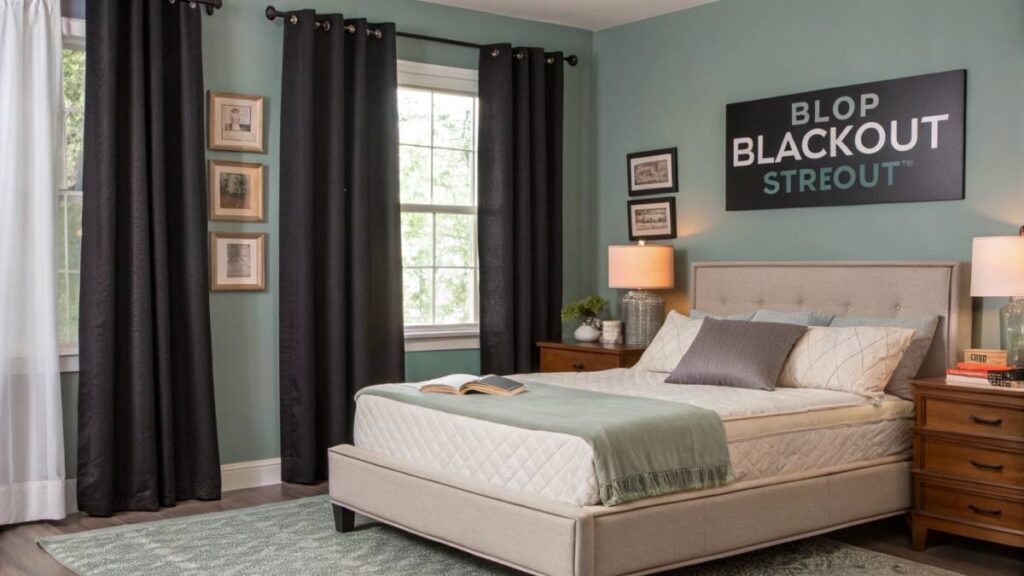
Establishing a Consistent Sleep Routine
Try sticking to a regular sleep schedule. Going to bed and waking up around the same time every day helps your body get into a rhythm, making it easier to nod off without worries pinging around your brain.
| Changes | Benefits |
|---|---|
| Consistent Bedtime | Keeps your body clock ticking smoothly |
| Regular Wake-up Time | Makes you feel more awake and peppy during the day |
| Predictable Pre-Sleep Routines | Eases bedtime jitters and helps you unwind |
For some ideas on crafting a bedtime routine that works, check out our guide on bedtime routine for adults.
Incorporating Chill-Out Techniques
Introduce some chill-out techniques to your pre-bed ritual to help combat anxiety and snooze better. Stuff like taking slow, deep breaths, doing muscle relaxation, or picturing peaceful scenes can zap stress and get you ready to hit the hay.
| Techniques | Description |
|---|---|
| Deep Breathing | Taking slow breaths to throw tension out the window |
| Progressive Muscle Relaxation | Squeezing and easing muscles to chase away stress |
| Guided Imagery | Daydreaming about calm sceneries to relax your mind |
Mindfulness meditation’s also a solid choice for tackling sleep anxiety. It centers you in the now and helps sweep away those nagging worries. Dive into meditation for sleep for more deets to add it to your game plan.
Creating a Cozy Sleep Zone
Making your bedroom a sleep-friendly zone can do wonders for your snooze quality and ditching anxiety. Tweak the room temp, light, and sound to make it a chill place to catch those Zs.
| Factors | Recommendations |
|---|---|
| Room Temperature | Keep it nice and cool, between 60-67°F |
| Lighting | Block out light with heavy curtains |
| Noise Levels | Use white noise or earplugs to hush background sounds |
| Mattress and Pillows | Get comfy with good support, see our best mattress for sleep guide |
| Scents | Use essential oils for sleep like lavender to calm your nerves |
For extra pointers on setting up a sleep-ready room, take a peek at our sleep-friendly bedroom article.
These changes can help tame that sleep anxiety and roll out the welcome mat for restful sleep. Tweak your routine, mellow out with relaxation tricks, and make your bedroom a comfy nest, and you’ll be on your way to improving your snooze time and feeling better overall.
Cognitive and Behavioral Techniques
Ditching sleepless nights? Try these handy tricks with a bit of brainpower. This section’s got all the goods on how shifting what you think and do can help tackle that pesky sleep anxiety.
Cognitive Behavioral Therapy for Insomnia (CBT-I)
Cognitive Behavioral Therapy for Insomnia, or simply CBT-I, is like a game plan to swap out those pesky thoughts and habits that keep you tossing and turning. It’s a mash-up of brain tweaking and behavior changing to help lock in some savvy sleep habits.
CBT-I generally rolls out like this:
- Sleep Restriction: Cut down your bedtime to match your actual snooze time to boost that sleep drive.
- Stimulus Control: Make sure the bed’s for snoozing and “other” activities only—nothing else.
- Cognitive Therapy: Kick those sleep-anxiety gremlins to the curb with thought replacements.
Swear by it—CBT-I’s been given the nod as a solid go-to. Folks usually tackle it over a few weeks.
| Therapy Component | Duration |
|---|---|
| Initial Assessment | 1 week |
| Cognitive Therapy Sessions | 4-6 weeks |
| Behavioral Modification | Ongoing |
Want the full scoop on CBT-I? Hit up our article on stress and sleep solutions.
Relaxation Response Techniques
Chill out by hitting that ‘off’ switch on stress through relaxation response techniques. These are all about unwinding and making stress do a vanishing act, easing sleep anxiety along the way.
Try these moves:
- Deep Breathing: Breathe in slow, breathe out slower—let the calm set in.
- Progressive Muscle Relaxation: Flex muscles, then let them flop like a noodle.
- Visualization: Close those peepers and picture your happy place to drown out stress.
Sneaking these chill sessions into your day can knock down sleep anxiety a peg or two.
| Technique | Time Required |
|---|---|
| Deep Breathing | 5-10 minutes |
| Progressive Muscle Relaxation | 15-20 minutes |
| Visualization | 10-15 minutes |
Crave more chill vibes? Check out our piece on meditation for sleep.
Mindfulness Meditation
Mindfulness meditation is basically training your brain to stay in the moment without sweating the small stuff. It’s handy for soothing the mind, waving goodbye to rumination, and welcoming a good night’s sleep.
Here’s how to jump into mindfulness:
- Find a Comfortable Position: Plop yourself down or lie back—whatever works.
- Focus on Breathing: Zero in on each breath.
- Acknowledge Thoughts: Let thoughts hover, but don’t invite them for a sleepover.
- Return to Breathing: Drift your focus gently back to breathing.
Stick with regular mindfulness sessions to keep anxiety at bay and let better sleep roll in.
| Number of Sessions | Time per Session |
|---|---|
| 3-5 per week | 10-20 minutes |
Wanna learn more about snagging some solid Z’s? Check out our guide on how to fall asleep naturally.
Mixing up these brainy and chill-out techniques can kick sleep anxiety to the curb and sweeten your overall sleep quality.
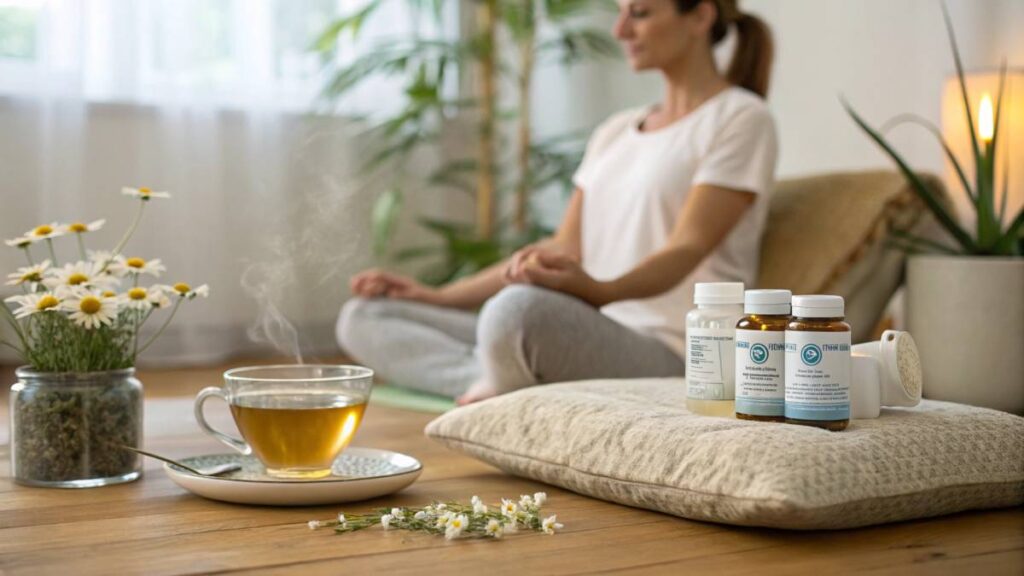
Herbal Remedies and Supplements
Finding herbal remedies and supplements might just be the ticket for tackling sleep anxiety the natural way. These options are like a gentle lullaby for your frazzled mind, easing you into a peaceful slumber.
“Nature itself is the best physician.” – Hippocrates
Chamomile and Valerian Root
These two are the all-stars in the world of herbal chill pills, often making an appearance in sleep-inducing drinks and tinctures.
Chamomile
Grandma knew what she was talking about with her bedtime chamomile tea; it’s been the secret to a good night’s rest for ages. Those antioxidants in chamomile? They’re like little bouncers for your brain, kicking out anxious thoughts and letting in relaxation. Whether you sip it as tea or pop it as a supplement, it gets the job done.
| Perk | Chamomile Tea | Chamomile Supplement |
|---|---|---|
| Helps Relax | Oh yeah | Definitely |
| Eases Anxiety | Yup | You bet |
| Dosage | One cozy cup before lights out | A 300mg capsule |
Craving more about chamomile? Check out our piece on herbal teas for sleep.
Valerian Root
The night owl’s best friend, valerian root is your go-to herb when your sheep-counting has reached triple digits. It’s famous for turning yawns into zzz’s and speeding up your bedtime routine. Pour it into your mug or swallow it as a capsule—the choice is yours.
| Perk | Valerian Tea | Valerian Supplement |
|---|---|---|
| Helps You Snooze | For sure | Absolutely |
| Cuts Down Falling Asleep Time | Yes, indeed | Indeed, yes |
| Dosage | A cup at bedtime | 400-900mg capsule |
Need more sleep tips? Take a peek at our advice on how to fall asleep naturally.
Melatonin Supplements
Think of melatonin as your body’s natural bedtime story reader. When life’s throwing your sleep schedule off, this supplement’s here to coax you back into a regular rhythm.
How Melatonin Works
As the sun sets, melatonin levels rise, nudging you towards sleep. For those wrestling with bedtime blues or wacky sleep patterns, melatonin might just be the hero you need.
| Effect | Benefit |
|---|---|
| Gets You to Dreamland Quicker | Heck yes |
| Syncs Up Your Body Clock | Indeed |
| Dosage | 0.5-5mg, about an hour before hitting the hay |
Curious about melatonin’s magic? Don’t miss our article on melatonin for sleep.
Grasping the potential perks and smart dosing of these natural aids is a stepping stone towards conquering sleep anxiety. Wannabe sleep experts, we’ve got more on exercise for better sleep and how your diet can help too.
Physical Activities for Better Sleep
When sleep seems elusive and anxiety lurks around like a nosy neighbor, adding some good ol’ physical activity to your day can work wonders. Getting your body moving—whether through heart-pumping exercises or calming yoga—can really help chill out that restless mind and catch some quality z’s.
Exercise and Sleep Quality
Exercise is like a magic bullet for sleep troubles. It cuts stress, boosts relaxation, and fine-tunes sleep. Whether you’re strutting around the block, running like the wind, or hitting the gym hard, moving your body can seriously shape up your sleep schedule.
Why Regular Exercise Rocks for Sleep:
- Takes a whack at stress and nerves
- Dials up that sweet, deep slumber
- Gets your body clock in sync
- Revs up the relaxation engine
| Type of Exercise | How Often? | Best Time | Sleep Perks |
|---|---|---|---|
| Aerobic (walks, jogs) | 3-5 times weekly | Morning/afternoon | Boosts sleep length and soundness |
| Strength Work (weights) | 2-3 times weekly | Morning/afternoon | Deepens sleep cycles |
| Stretch & Flex (yoga) | Daily | Evening | Chills muscles, eases into relaxation |
Read up more on the advantages of exercise for sleep and how it kicks sleep anxiety to the curb.
Yoga and Its Calming Effects on Sleep
Yoga is sleep magic in stretchy pants. With its gentle moves and calming vibes, it smooths out those mental wrinkles and helps the body find peace. A regular yoga habit can hush the mind, untangle stress, and lead you to a serene night’s sleep.
Yoga Wins for Better Sleep:
- Nukes tension and stress
- Breeds mindfulness and calm
- Pumps up healthy breathing
- Polishes off better overall sleep
| Yoga Pose | How To Do It | Sleepytime Perks |
|---|---|---|
| Child’s Pose (Balasana) | Kneel with toes touching, arms stretched out | Soothes mind, drains stress |
| Legs Up the Wall (Viparita Karani) | Lay back with legs parked on the wall | Zaps anxiety, boosts circulation |
| Corpse Pose (Savasana) | Recline flat with limbs loose | Calls for deep rest, unwinds stress |
Check out some specific yoga moves for sleep that tackle sleep anxiety and help you drift into dreamland.
Pair these physical activities with other natural ways to lure sleep, like sticking to a bedtime schedule or munching on sleep-friendly foods, and you could see a big sleep boost. Discover more natural sleep hacks to back up your exercise and yoga endeavors.
Diet and Nutrition
Looking to tackle sleep anxiety? Your diet’s got a hand in it, believe it or not. Some eats will tuck you in for a solid night’s snooze, while others? Well, they’ll have you counting sheep all night. Let’s dish out the deets on noshing for some shut-eye magic.

Foods That Tuck You In
Here’s a spoonful of nosh that can help you drift off faster than you can say “Zzzz.” These munchies are top-notch for catching more quality winks:
- Almonds: Loaded with magnesium—your Mr. Sandman for dreamy nights.
- Turkey: Gobble up the tryptophan for easy sailing into dreamland.
- Chamomile Tea: Sip on this to chill out and glide into relaxation mode. Peek at our guide on herbal teas for sleep.
- Kiwi: Packed with antioxidants and vitamins that round out your sleepy-time roster.
- Tart Cherry Juice: Sip down the natural melatonin hit for easier sleep rhythm.
| Munchies | Sleep-Savvy Ingredient | Bonus for Snooze Land |
|---|---|---|
| Almonds | Magnesium | Quality sleep booster |
| Turkey | Tryptophan | Sleep promoter |
| Chamomile Tea | Apigenin | Relaxing effects |
| Kiwi | Antioxidants, Vitamins | Sleep clock harmonizer |
| Tart Cherry Juice | Melatonin | Regulates sleep cycles |
Snacks to Sidestep Before Snoozing
Some nosh can throw a wrench in your slumber plans. Steer clear of these for a cozied-up night under the stars:
- Caffeine: Whether it’s your cuppa joe or fizzy pop, it’ll keep you jumping.
- Spicy Foods: They might light up your tastebuds, but they’ll mess with your belly come bedtime.
- Alcohol: Could make you nod off at first, but your sleep cycle’s taking a hit later.
- Sugary Foods: These will spike your blood sugar like a firecracker, leaving you wide-eyed.
- Heavy Meals: Digestion slows down; sleep’s left waiting at the corner.
| Foods/Drinks | Why You Should Skip ‘Em |
|---|---|
| Caffeine | Too buzzy, keeps you awake |
| Spicy Foods | Habitual heartburn starter |
| Alcohol | Restless nights regular |
| Sugary Foods | Blood sugar roller coaster |
| Heavy Meals | Digestively tough-going |
Make your plate work for you, and your sleep anxiety’s got nothin’ on you. For more tasty bedtime tips, see our piece on diet for better sleep. Fancy a full night’s rest? Check out natural sleep solutions or dig into best natural sleep supplements to put that nighttime tossing to rest.
Looking for Expert Support
When sleep anxiety kicks in and lingers like an unwanted guest, it’s time to bring in the big guns – the pros who know sleep like the back of their hand. A visit to a sleep specialist could just be the ticket to shake off those restless nights and get you on the path to dreamland.
The greatest wealth is health.” – Virgil
Chatting with a Sleep Doctor
Sleep doctors are like private detectives for your snooze time. Armed with their know-how, they get to the nitty-gritty of your sleep anxiety, find out what’s messing with your Z’s, and whip up a plan tailor-made for you. If swapping out habits or chasing natural fixes haven’t hit the spot, a sleep doctor’s got your back.
Here’s what they might pull out of their toolbox:
- Sleep Diaries: Jot down your sleep story – when you hit the hay and when you rise and shine, for weeks at a stretch.
- Sleep Studies (Polysomnography): Picture an overnight vigil on your snooze style – brain waves, oxygen, the whole shebang.
- Questionnaires: Get a snapshot of your sleep quality, what’s playing on your anxiety channel, and your mental wellness.
| Category | Description |
|---|---|
| Sleep Diary | Track your sleep patterns and habits over several weeks. |
| Polysomnography | An overnight sleep analysis that checks out your brainwaves, oxygen levels, heart rate, and breathing. |
| Questionnaires | Quizzes that gauge sleep quality, anxiety levels, and mental health. |
Hanker for some natural sleep fixes? Check out more of our ideas on natural sleep solutions.
Choices for Pro Help
Let’s look at some pro treatments that might just help you give sleep anxiety the heave-ho. These treatments tackle sleep problems from all angles:
Cognitive Behavioral Therapy for Insomnia (CBT-I)
- Dive into CBT-I, a program that helps ditch those thoughts and behaviors that hijack your sleep. It’s a go-to for boosting sleep quality and keeping anxiety at bay. Got a curiosity itch? There’s more in our piece on meditation for sleep.
Medication
- No one wants to rely on pills, but sometimes, a temporary prescription helps. Your sleep expert will steer you to the safest bets.
Biofeedback
- Biofeedback can be a game-changer, teaching you how to take the wheel on physical functions that affect your sleep, like calming a racing heart.
Light Therapy
- Reset your inner clock with light box therapy – it’s a game for those battling messed-up sleep cycles. Dive into more with us on reset circadian rhythm.
| Type | Description |
|---|---|
| CBT-I | Therapy for rewriting your sleep-busting thought book. |
| Medication | Short-term pharmacy assist for hardcore cases. |
| Biofeedback | Method to gain control over sleep-influencing bodily functions. |
| Light Therapy | Fixes your sleep schedule with controlled light exposure. |
If sleep troubles refuse to say goodbye, consider these pro treatment routes. They’re here to help you claim back the sweet relief of a proper night’s sleep. For DIY tips, we’ve got pieces on how to fall asleep naturally and diet for better sleep.
Trying out professional treatments pops the doors open to bigger and better sleep solutions, making those restless nights a thing of the past.
Main Tips
- Establish a Consistent Sleep Schedule: Go to bed and wake up at the same time every day to regulate your internal clock.
- Create a Sleep-Friendly Environment: Keep your bedroom cool, dark, and quiet to promote better sleep.
- Limit Screen Time Before Bed: Reduce exposure to blue light from devices at least an hour before bedtime.
- Incorporate Relaxation Techniques: Practice deep breathing, meditation, or gentle yoga to calm your mind before sleep.
- Monitor Your Diet: Avoid caffeine and heavy meals in the hours leading up to bedtime to prevent sleep disturbances.
Conclusion
Overcoming sleep anxiety is a multifaceted journey that involves understanding its roots, adopting effective remedies, and making thoughtful lifestyle changes. By integrating natural solutions such as herbal supplements and mindfulness practices with professional therapies like Cognitive Behavioral Therapy for Insomnia (CBT-I), you can address both the symptoms and underlying causes of your sleep disturbances. Establishing a consistent sleep routine and creating a sleep-friendly environment further enhances your ability to achieve restful nights. Additionally, paying attention to your diet and incorporating regular physical activity can significantly reduce anxiety levels and improve overall sleep quality. Remember, the path to better sleep is a personalized one—experiment with different strategies to discover what works best for you. With persistence and the right tools, you can break free from the grips of sleep anxiety and embrace the rejuvenating rest you deserve.
FAQs
What is sleep anxiety?
Sleep anxiety is the persistent worry or fear related to falling asleep or staying asleep, often leading to a cycle of stress and insomnia.
How can mindfulness meditation help with sleep anxiety?
Mindfulness meditation trains your brain to stay present, reducing rumination and calming the mind, which facilitates easier and more restful sleep.
What are natural supplements that aid sleep?
Herbal remedies like chamomile, valerian root, and melatonin supplements are popular natural aids that promote relaxation and improve sleep quality.
When should I seek professional help for sleep issues?
If sleep anxiety persists despite trying natural and lifestyle remedies, consulting a sleep specialist or therapist can provide targeted treatments like CBT-I.
Can exercise improve my sleep quality?
Yes, regular physical activity helps reduce stress, regulate the sleep cycle, and enhance overall sleep quality.
Resources
- National Sleep Foundation
- American Academy of Sleep Medicine
- Mayo Clinic on Sleep Anxiety
- Herbal Medicines for Sleep
Recommended Products
- Chamomile Tea by Bigelow
- Relax with every sip of this soothing chamomile tea, perfect for your nightly wind-down routine.
- Valerian Root Capsules by Nature’s Bounty
- Support your sleep naturally with these high-quality valerian root supplements.
- Melatonin Supplements by Natrol
- Regulate your sleep cycle with trusted melatonin tablets, ideal for occasional sleepless nights.
- Weighted Blanket by YnM
- Enhance your sleep comfort and reduce anxiety with this cozy weighted blanket.
- Essential Oil Diffuser by InnoGear
- Create a calming bedroom atmosphere with this sleek essential oil diffuser.
Final Thoughts
Navigating the challenges of sleep anxiety requires a blend of understanding, patience, and the right strategies. By leveraging natural remedies, seeking professional guidance, and making conscious lifestyle changes, you can break free from the cycle of anxiety and sleepless nights. Remember, everyone’s journey to restful sleep is unique, so it’s essential to find the combination of methods that works best for you. Prioritize your sleep health, embrace the techniques that resonate with you, and take the first steps towards peaceful, rejuvenating nights. Your path to better sleep is within reach—start today and wake up to brighter, more energized days.

